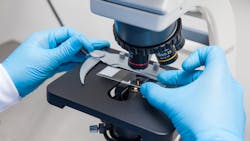Antibodies in ancient teeth could give insights into history and future of infectious diseases
Antibodies found preserved in ancient teeth could provide an opportunity for scientists to investigate the history and future of infectious diseases.
A collaborative study between researchers at the School of Life Sciences, University of Nottingham and the Department of Medicine at University College London and published in iScience found that antibodies extracted from teeth from skeletons dating from between 1285 to 1470 were stable and capable of “recognizing” viral proteins.
The particular antibodies found from the medieval teeth were found to recognize the Epstein-Barr virus antigen (EBV), which tested as proof of concept to determine if purified ancient human antibodies preserved any evidence of immune reactivity, as EBV is a “ubiquitous human herpesvirus which today infects almost all humans worldwide.”
Upon testing for EBV, the study notes, “Overall, we confirm that ancient antibodies are not only intact but can apparently retain functionality, presumably here representative of ancient systemic host inflammatory responses.”
You might also be interested in reading: Newly discovered "bacterial partnership" increases childhood caries severity
The work expands the field palaeoproteomics—the analysis of ancient proteins—offering insight that “Recovering functional proteins from skeletal tissues could uncover a molecular memory related to the life-history of the associated remains,” according to the study summary.
Previous results from palaeoproteomics include proteins successfully recovered and sequenced after preservation in 6.5-million-year-old ostrich eggshell, and 1.7-million-year-old dental enamel from an ancient rhinoceros. In this recent study, researchers also found preliminary evidence that, like the 800-year-old human teeth, mammoth bones nearly 40,000 years old appear to preserve stable antibodies.
The study notes that the findings could pave the way for new insights into health and immunity: “The concept of ancient antibodies preserving a molecular memory of an individual’s immune status at the time of death that can potentially be ‘read’ with contemporary immunological approaches is certainly very attractive. This would provide new insights into the long-term association between host immune factors and ancient environmental microbes or changing environments and more broadly the natural history of human health and immunity, including autoimmunity.”
About the Author
Elizabeth S. Leaver
Digital content manager
Elizabeth S. Leaver was the digital content manager for Endeavor Business Media's dental group from 2021-2024. She has a degree in journalism from Northeastern University in Boston and many years of experience working in niche industries specializing in creating content, editing, content marketing, and publishing digital and magazine content. She lives in the Boston area.
